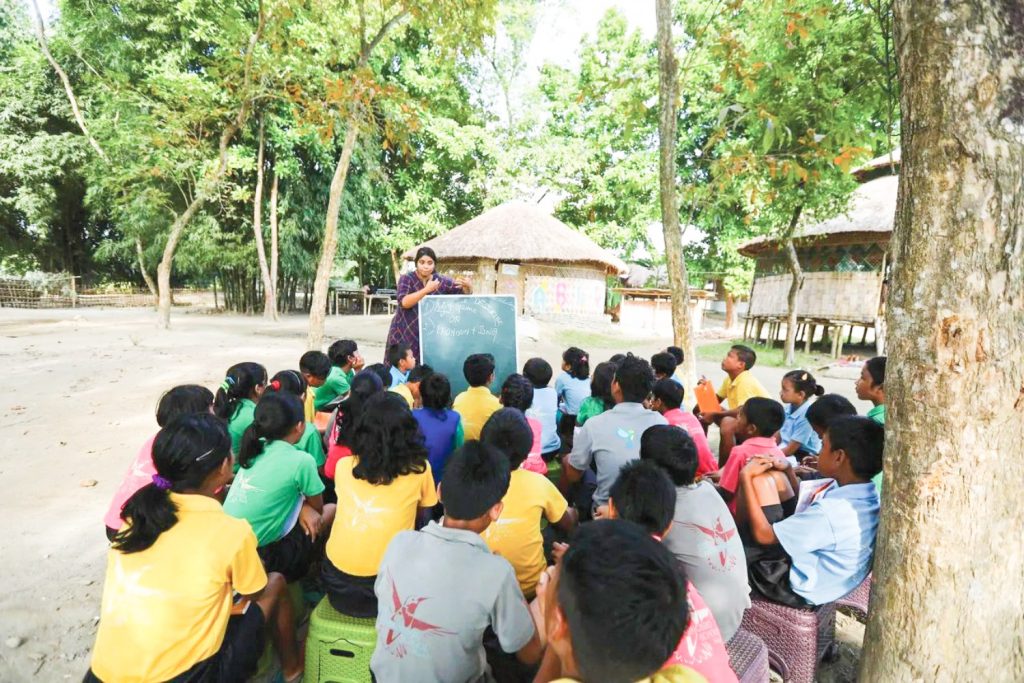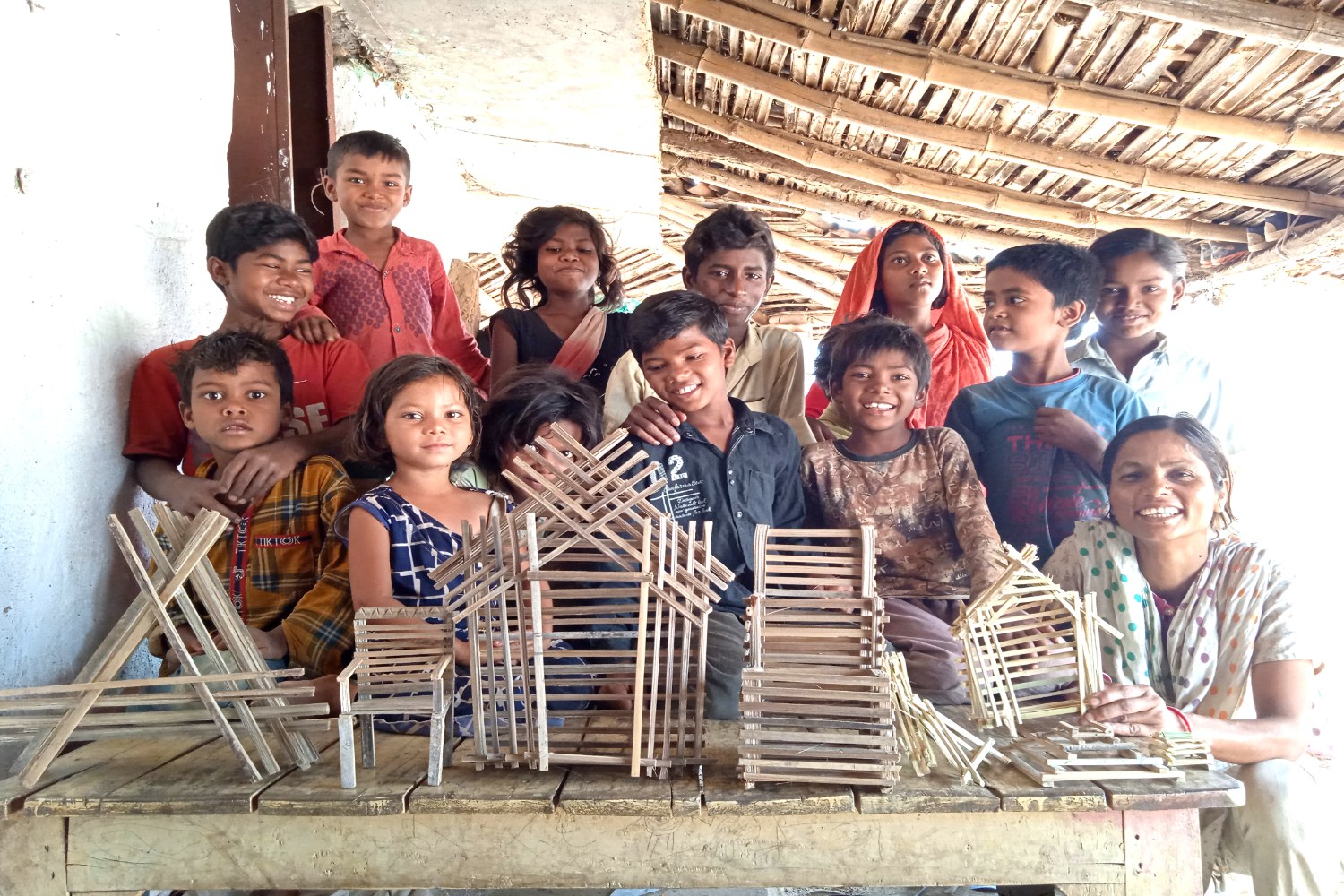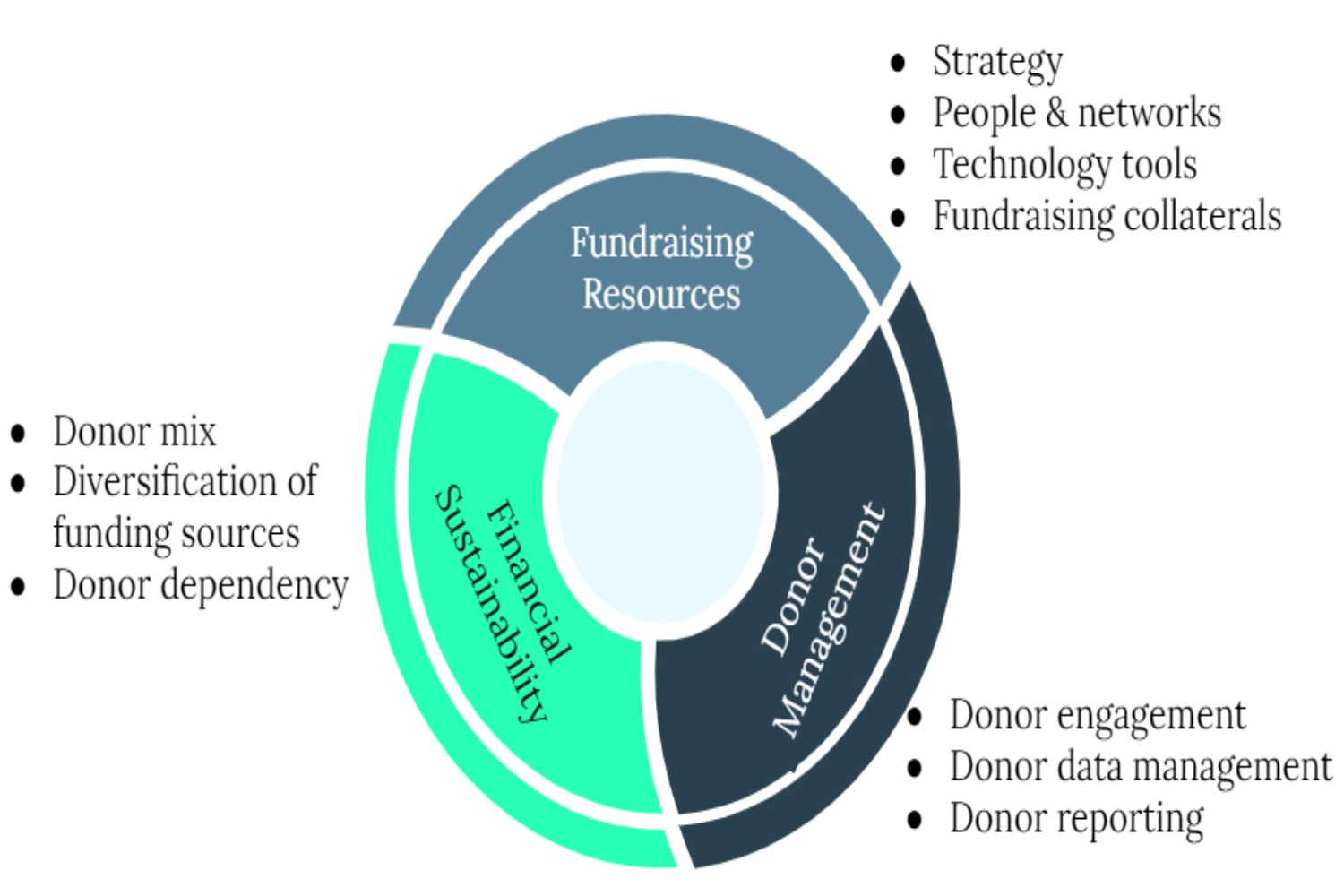How Do Courses on Fundraising Work – Perspectives from Three Participants
This article includes a set of three reviews of a certificate program on fundraising being run by India Leaders for Social Sector (ILSS).

India Leaders for Social Sector (ILSS) was set up in 2017 with the goal of building capacities for leadership in various domains of social development in India. It is incubated by Central Square Foundation and has Indian School of Development Management (ISDM) as a knowledge partner. It runs a flagship leadership program since January 2018. It launched a similar program for fundraising in 2020, that is designed for social sector leaders and fundraising professionals. In this feature we provide perspectives of three participants from this program.
Aswathy Preetha Jayakumar, Ayang Trust
As a person who took on the responsibility of formally fundraising for Ayang Trust early this year, I was clueless about where to begin. Most of our existing funding has been through contacts who did the convincing part for us with the donors. The ILSS Fundraising Program was an opportunity I was fortunate to get to know of and then grab at the right time. Apart from offering a well-structured curriculum on fundraising, the program matches you with a mentor who is an expert in fundraising as well. It also connects you to a network of passionate and committed peers.
From understanding donor mind-sets, be it individual, CSR or Foundations, to engaging donors through regular reporting, the nature of communication and investing in them as long term partners in the work you do, to ensuring you have a strong and inspiring pitch, no topic was left unexplored. I was a part of the program during the lockdown period. It was fully virtual.
The program opens up a world of funding opportunities for the participants that is out there for anyone to grab, only if you know where to look, how to structure your approach, and when to make the jump. The program has been instrumental for me in gaining the confidence and vocabulary to showcase the work that Ayang Trust does and to navigate the philanthropy landscape in the country on a better footing.
Some Key Features of the Program
The ILSS Fundraising Program is a certification course that is open to founders, fundraising professionals, both seasoned and beginners, with at least 5 years’ of experience. The program faculty range from CSR leaders, individual philanthropists, seasoned fundraising officers of large and established non-profits etc.
It is tightly structured, demanding an average of 6 hours per week for nearly 4 months. One will need to clear their schedule for 4 months to accommodate these sessions, as each session builds on another. Each session is between 1.5 to 3 hours in length, and is delivered in English with Hindi translations if needed. To miss even one session would be a huge loss. However, the ILSS team is highly proactive and tries to ensure that everyone is getting the best out of the program.

The pedagogy differs according to the resource person, mostly following a presentation and then a Q&A format. Some resource persons also conduct group-work, or follow hands-on work approaches, with pre-readings and assignments. The course provides the participants with examples and proven frameworks for key needs of a fundraiser.
These include, how to tell your organization’s story to inspire action from a potential donor, frameworks for engaging donors, finer details of how often to communicate, the various types of communication, the checklist of legal compliances organizations need to be ready with for effective and diverse funding opportunities, steps of converting potential donors to long term partners, etc.
The course fee is around 1.2 Lakhs, however there are scholarships available for small and beginning stage organizations. The ILSS Fundraising program is an unparalleled course for anyone who wants to ensure financial stability and sustainability of their social purpose organization. I would highly recommend every founder of social purpose organizations to be a part of this program, especially in the early years.
Rohit Kumar, Apni Shala Foundation
The ILSS Fundraising Program is designed for building knowledge and skills in fundraising for social sector professionals and leaders. It is meant for those who have some experience in fundraising so that they can engage, critique, and dialogue with the presenters and the content. If I had not done fundraising before, a lot of the language would have been relatively new for me. For example, it helped that I had known what a pitch deck is – because the program does not introduce me to it but helped me get better.
The sequencing of the content was thought through well. It started with an overview of the landscape, understanding the different types of fundraising, and orienting us to the required skills. Towards the end, we were asked to do a simulative pitch. The course offered a great space to practice the skills we learned. There were many opportunities to actually work on the pitch and communication pieces with each other. Case studies on fundraising strategies of organizations were discussed; it helped us understand the nuances.
The diversity of speakers they got for the sessions was great. I personally loved learning from Rukmini Banerji (Pratham’s CEO) and Aditya Natraj (Kaivalya). Their perspectives on fundraising were wholesome and insightful. During the program, all the participants received mentorship support from experts as well. We had monthly calls with our mentors. I received some useful insights on fundraising strategy from my mentor.
The duration of the course was doable for me, primarily because it was online. The course began right after the first wave of the pandemic hit. Our own lives were all over the place. So I did miss some sessions. But overall, it worked for me. The duration of the course was doable for me, primarily because it was online. The course began right after the first wave of the pandemic hit. Our own lives were all over the place. So I did miss some sessions. But overall, it worked for me.
I found the sessions to be heavily instructor-led. If that were to be balanced with listening to the cohort’s insights, then these sessions would be more enriching. I felt that the program primarily took a position that it’s the social good organizations (NGOs/NPOs) who primarily have to do the work of ‘asking’ better.
I wonder what would become possible for the cohort participants – as well as the funding sector as a whole – if there were more organized spaces built for discussions on how we can alter donor mindsets and behavior, when they are not aligned to justice and equity for communities.
The distraught socio-economic class-based relational spaces were not part of the course content – which I think is at the crux of the problems related to fundraising in the sector. We must ask, what happens when a social impact organization leader is from a poor or lower/middle-income group, and they have to ‘ask’ a rich donor for money? How does gender-relations impact asking for funds? The ILSS team’s flexibility helped here, as when offered feedback to bring these conversations into the program’s discourse, they created additional spaces for the cohort to discuss these further.
Vivek Kumar, Kshamtalaya Foundation
There were around forty-five-course participants and the classes were held online. For five months, we had sessions thrice a week. Each session was around two and a half hours long. The sessions were delivered in English.
These sessions were facilitated by speakers who came from a diverse spectrum. There was an expert from Dalberg, which is a development consulting firm. Ashish Dhavan, who is a philanthropist and Founder of Central Square Foundation, shared his insights. Members from the leadership team of non-profits such as Child Rights and You, Teach for India, among others, also led sessions. These speakers shared their insights and discussed case studies for an hour or so, followed by a round of questions and answers.
There were also peer-led sessions organized fortnightly. In these sessions members in the cohort were encouraged to share their reflections and insights on certain aspects of fundraising with other program participants. In these sessions, a lot of us worked in groups of four or five. We were given an organization for which we had to prepare a fundraising pitch. We presented our pitch to the cohort and received feedback. This process proved to be helpful.
One feedback that I shared with the ILSS team was that, the literature and resources shared would hold true for the western context. But in the Indian context, a lot of these things change. In the West, fundraising is driven by volunteers. But here in India, it is driven by the CEO of the non-profit. The motivations of why people donate and the approach to fundraising are vastly different here in the Indian context.
I really enjoyed learning the craft of storytelling – how to make your story relatable, how to frame a compelling pitch, how to add a sense of urgency to address a particular cause, helping donors recognize your passion, and use a language that would help your donors to better understand the context you operate in. For instance, if I want to tell donors that I work with children in a remote geography and that children in this region lack access to quality education, I will have to tell them how is it that this region is isolated from other parts and what I mean by quality education.
Another important takeaway from the course was that I need to be more empathetic towards the donors. If I am pained about a cause, the donor might also be equally pained by another cause. We could explore synergies in the causes we are addressing. For instance, if they are working on livelihood interventions, we could perhaps synergize our interventions around education.
It is also alright if we are not able to synergize our efforts. As long as we are all working diligently towards social justice in our own ways, we should respect each other’s work. Empathy is two-way traffic and we need to build that for donors and partners as well, and see fundraising from a larger goal of achieving social justice for all.
The course fee is INR one lakh eighteen thousand with taxes included. They offer need-based scholarships. Since the course fee is quite high for individuals from many non-profits, there were donors who were willing to cover the course fees. It does make me wonder about how team members from young non-profits might find it difficult to afford the course and learn the relevant skills for fundraising. It is good to know that if an applicant reaches out to the ILSS team and lets them know about their inability to afford the fees, the program team does reach out to people in their network for sponsors.
The program team at ILSS is accessible. If alumni request to connect with an expert in the ILSS team’s network, then the team does the needful. I am impressed by the commitment of the team to seek and incorporate feedback. It is great to see the team being so keen on dynamically improving their curriculum.
ILSS Fundraising Program’s Website:
https://indialeadersforsocialsector.com/the-ilss-fundraising-program/




No approved comments yet. Be the first to comment!